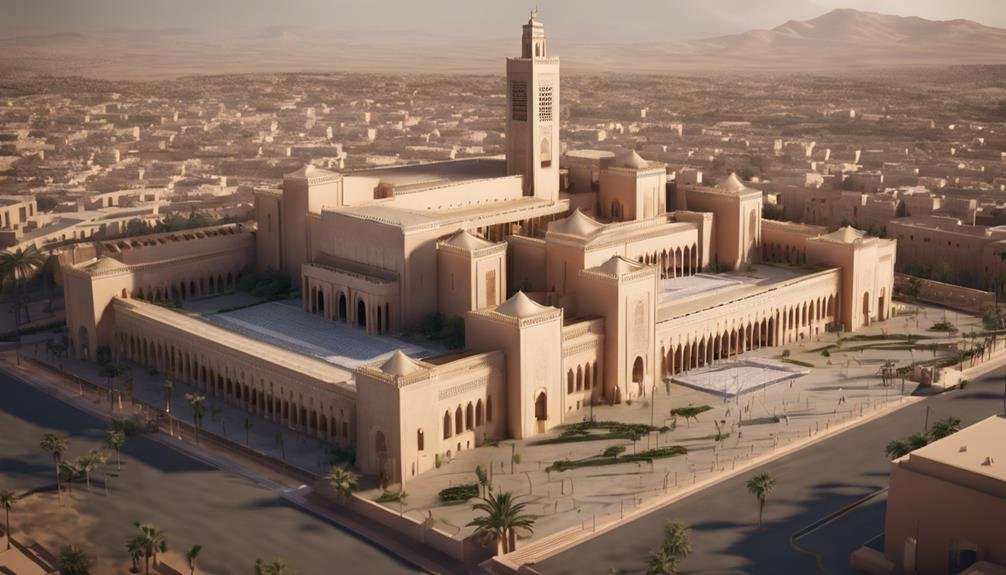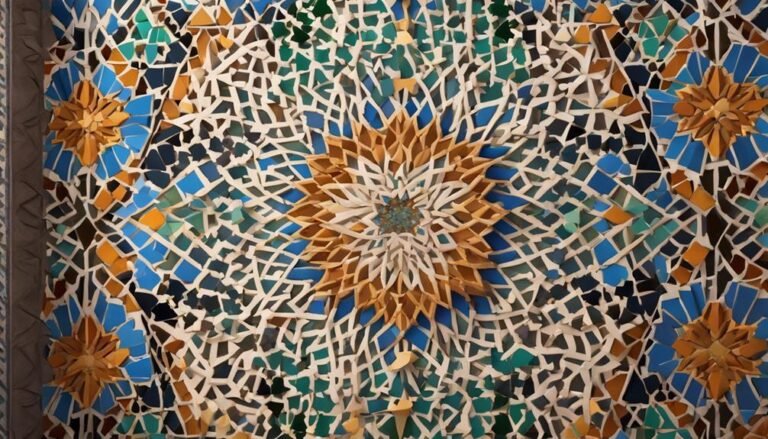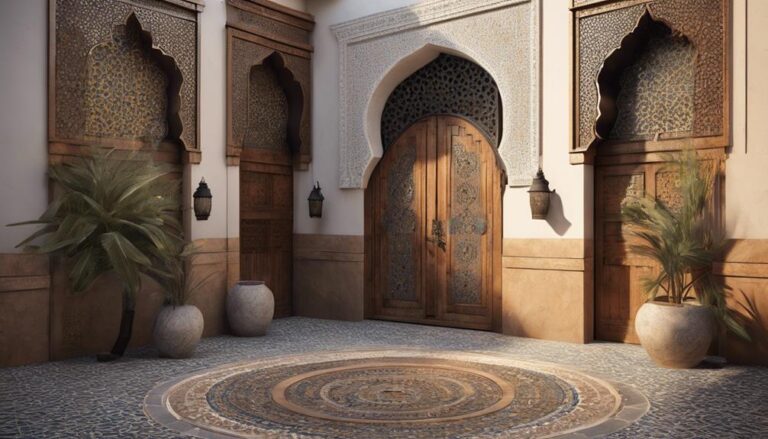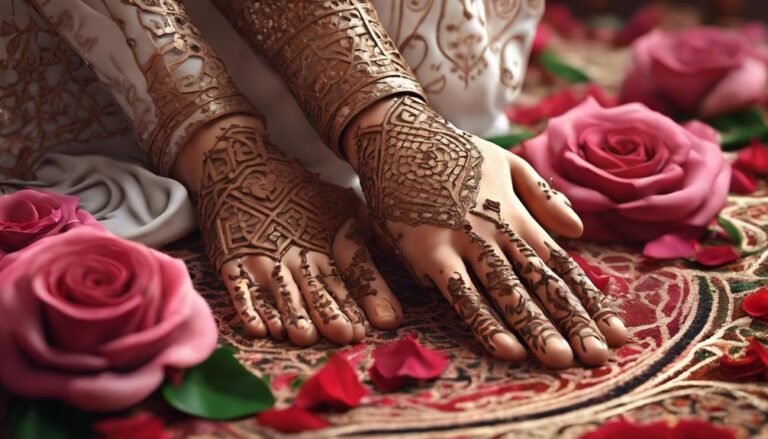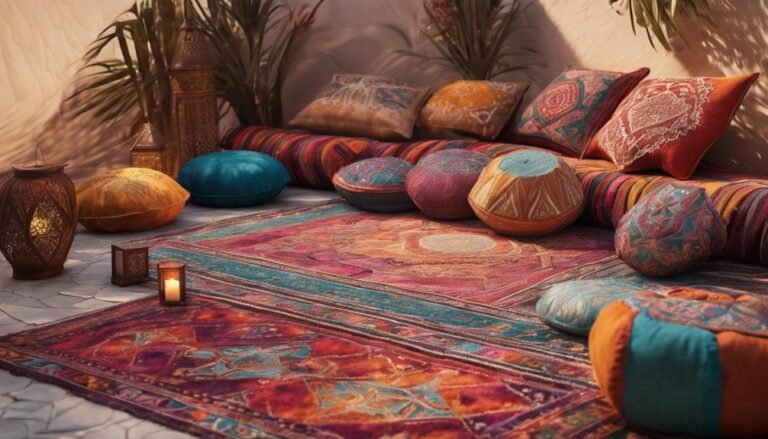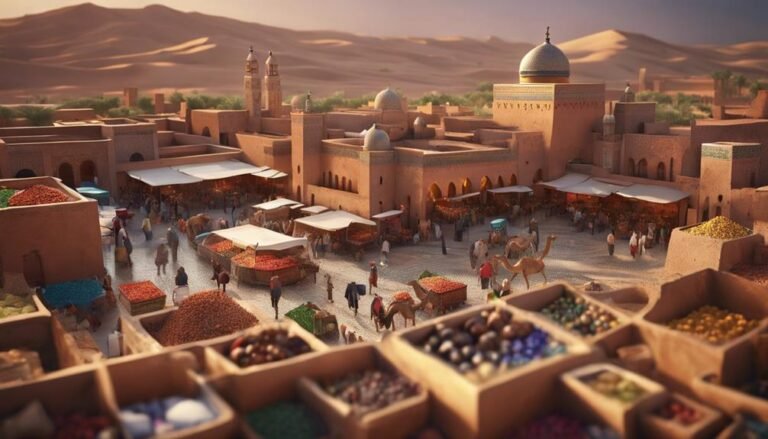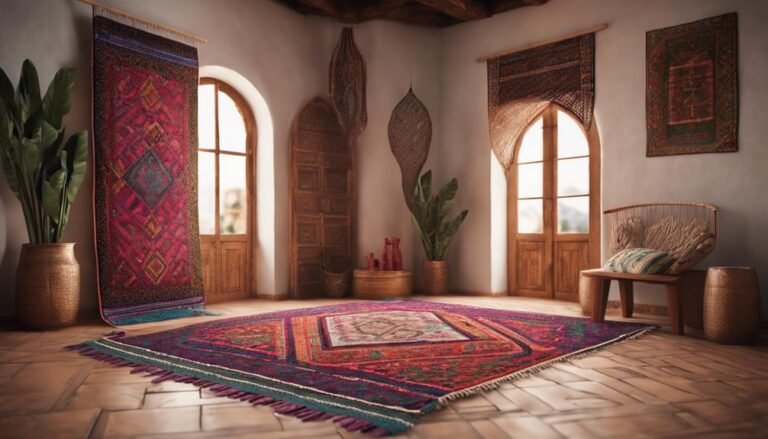In Morocco, the political system is complex and influenced by a rich historical background. The monarchy holds significant power, with the king serving as head of state and appointing key officials. The Parliament operates in a bicameral structure, with proportional representation in the House of Representatives and representatives selected by various entities in the House of Councillors. Constitutional reforms in 2011 aimed to enhance democratic principles and citizen rights, leading to an evolving landscape of governance and citizen engagement. Explore the intricate political system of Morocco, where the monarchy, Parliament, and constitutional reforms shape the country's governance.
Key Takeaways
- Morocco has a constitutional monarchy with the King holding significant power.
- The Parliament is bicameral, consisting of the House of Representatives and House of Councillors.
- Political parties operate within a multi-party system and form coalitions.
- Reforms in 2011 enhanced separation of powers and expanded citizen rights.
- The monarchy appoints key government officials and is a unifying force in the country.
Historical Background
The evolution of the political system in Morocco can be traced back to its rich historical background, encompassing various dynasties and foreign influences. Colonial influence played a significant role in shaping Morocco's political landscape. During the 19th and 20th centuries, European powers like France and Spain established protectorates in Morocco, impacting the governance structure and policies of the country.
Constitutional reforms have also been pivotal in the development of Morocco's political system. The country has undergone several significant constitutional changes throughout its history, aimed at modernizing the political institutions and promoting democratic practices. For instance, the reforms initiated by King Mohammed VI in 2011 in response to the Arab Spring protests aimed to enhance the separation of powers, reinforce the independence of the judiciary, and expand the rights of citizens.
The Monarchys Role
Amidst Morocco's political landscape, the monarchy plays a pivotal and influential role in shaping governance and policy decisions.
- Monarchy's Power: The Moroccan monarchy holds significant power, with the king being the head of state, the military, and the religious community. This concentration of authority allows the monarchy to exert considerable influence over the country's affairs.
- Royal Family Dynamic: The royal family in Morocco is highly respected and plays an essential role in maintaining stability and tradition within the country. The king's family members often hold influential positions in government and society, further solidifying the monarchy's power and influence.
- Political Influence: The monarchy's involvement in politics goes beyond ceremonial duties, as the king has the authority to appoint key government officials, including the prime minister and cabinet members. This involvement ensures that the monarchy has a direct impact on policy decisions and governance.
- Stability and Continuity: The monarchy in Morocco is seen as a unifying force that provides stability and continuity in a rapidly changing political landscape. By balancing tradition with modernity, the monarchy helps maintain order and coherence within the country.
The Parliament and Political Parties
Within Morocco's political framework, the Parliament and various political parties play integral roles in shaping legislative decisions and representing diverse interests. The Parliament in Morocco is bicameral, consisting of the House of Representatives (lower house) and the House of Councillors (upper house). Members of the House of Representatives are elected by the people through a system of proportional representation, while the House of Councillors is comprised of representatives selected by local councils, professional chambers, and labor syndicates.
Political parties in Morocco operate within a multi-party system, with the Justice and Development Party (PJD) being one of the most prominent. Party dynamics in the country are influenced by a mix of ideological, regional, and historical factors. Parties often form coalitions to gain a majority in the Parliament and collaborate on passing legislation. The structure of the Parliament allows for robust debates and discussions on various issues, reflecting the diverse viewpoints present within Moroccan society.
Human Rights and Civic Engagement
How effectively do human rights and civic engagement intersect within Morocco's political landscape?
Human rights and civic engagement play vital roles in shaping the political environment in Morocco. Here are four key points to ponder:
- Human Rights Protections: Morocco has made progress in promoting human rights through legal reforms and the establishment of institutions like the National Human Rights Council. However, challenges remain, particularly in areas such as freedom of expression and protection of marginalized groups.
- Civic Engagement Opportunities: Citizens in Morocco have avenues for civic engagement, such as through civil society organizations and peaceful protests. These channels allow individuals to voice their concerns and participate in shaping policies that affect their lives.
- Youth Participation: The youth in Morocco are increasingly engaging in civic activities, advocating for social change and political reform. Their activism demonstrates a growing awareness of human rights issues among the younger generation.
- Government Accountability: Civic engagement serves as a tool to hold the government accountable for upholding human rights standards. By actively participating in the political process, citizens can demand transparency and accountability from their leaders.
Evolution of Moroccos Political Landscape
The political landscape in Morocco has undergone significant evolution over the past few decades, reflecting changing societal dynamics and governmental reforms. Morocco has experienced a gradual shift towards a more open and inclusive political system, marked by a series of political transformations aimed at enhancing democratic principles and citizen participation. These reforms have included changes to the constitution, the establishment of a bicameral legislature, and efforts to promote gender equality in political representation.
The democratic metamorphosis in Morocco has been a complex process, influenced by both internal and external factors. The government has taken steps to decentralize power, strengthen the rule of law, and improve governance practices. Despite these efforts, challenges remain, including issues related to political transparency, human rights, and the role of the monarchy in the political system.
Conclusion
To summarize, Morocco's political system is a complex blend of traditional monarchy and modern parliamentary democracy. The monarchy plays a significant role in the country's governance, while the parliament and political parties provide avenues for civic engagement.
Despite challenges in human rights, there's been an evolution in Morocco's political landscape towards greater inclusivity and transparency. Overall, the political system in Morocco continues to navigate a delicate balance between tradition and progress.

The Editorial Team is a passionate group of Morocco enthusiasts dedicated to sharing the beauty, culture, and wonders of this captivating country. With diverse backgrounds and a deep love for travel, we strive to bring you engaging and informative content that inspires your Moroccan adventures. From uncovering hidden gems and sharing local insights to exploring mouthwatering cuisine and showcasing the vibrant lifestyle, our team is committed to providing you with valuable resources and exciting stories that enhance your exploration of Morocco. Join us on this journey as we celebrate the rich heritage and unforgettable experiences that make Morocco truly special.

